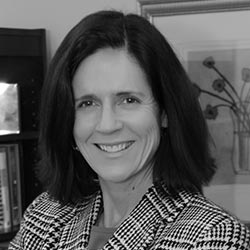News
The Nurse Shortage Isn't a Partisan Issue
August 24, 2017
As the United States continues to grapple with healthcare reform, it also is experiencing a massive demographic shift as Americans rapidly grow grayer and more ethnically diverse. “This reality will put enormous strain on a healthcare system ill-prepared for it” says Sheldon Fields, Ph.D., dean, NYIT School of Health Professions, in an op-ed published by The Hill. The case in point he cites: America's looming nurse shortage.
The largest component of the healthcare workforce, nurses play an indispensable role, Fields writes. However, the demand for nursing services soon will dramatically outstrip the supply, and all the more so because of the 20 million-plus people who gained access to healthcare under the Affordable Care Act.
In this environment, the skills of nurses—specifically, advanced practice nurses—will be especially valuable. Advanced practice nurses are able to run primary care clinics and manage the treatment of medical issues from sinus infections to diabetes and hypertension. When medical facilities employ advanced practice nurses, physicians are able to reserve their time for specialty and complex cases. Moreover, their versatile skill set makes these nurses well-suited to provide healthcare to populations that would otherwise be underserved.
Unfortunately, shifting demographics won't just increase the demand for nurses--it will also reduce the supply. The average age of a working registered nurse is over 50, and nearly half of our 2.7 million nurses will reach retirement age within the next 15 years.
Nursing schools aren't producing nearly enough graduates to provide the 1.2 million new nurses our nation will need by 2030. A lack of faculty, classroom space, and other resources forced nursing schools to turn away more than 64,000 qualified applicants in the 2016-2017 academic year. Without a sustained effort to train enough nurses, America's health system may be pushed past the breaking point.
On this front, there's much that lawmakers in Congress can do, Fields suggests, starting with providing healthcare and educational institutions with resources to train the next generation of nurses.
Congress should also seek to remove regulatory barriers that prevent advanced practice nurses in many states from making full use of their knowledge and skills.
“Not all healthcare reforms need to inspire bitter partisan conflict like the one happening in Washington. Commonsense reforms to avert a nursing shortage deserve the support of both parties—and are essential to cope with our coming demographic upheaval,” Fields concludes.
This op-ed is part of an NYIT thought-leadership campaign designed to help generate awareness and build reputation for the university on topics of national relevance. Read more op-eds by NYIT experts.


_Thumb.jpg)


